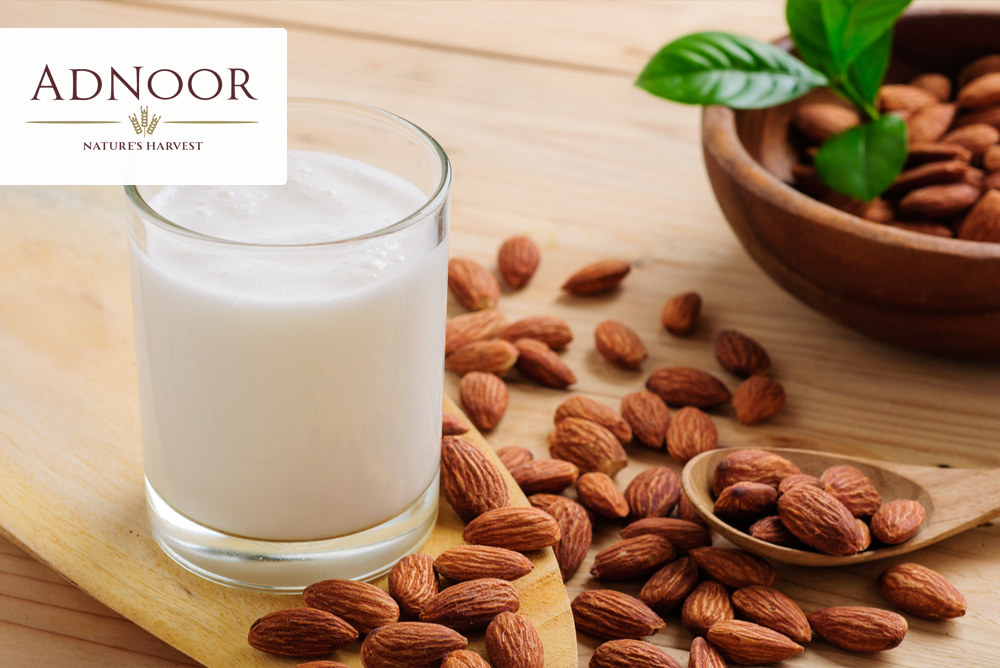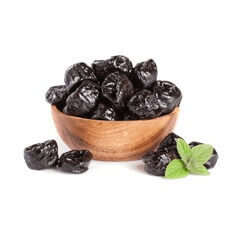The option of almond milk over cow’s milk
The selection between almond milk and cow’s milk is based on personal preference and nutritional requirements. Here’s a side-by-side comparison.
Almond Milk
Almonds are native to the Middle East but seem to be popular worldwide. The nuts are consumed as snacks, crushed into flour, and even made into creamy, dairy-free milk. Almond milk is one of the most popular almond products due to a key feature: it is lactose-free. Almond milk is a healthful alternative to dairy drinks for vegans and persons with lactose sensitivity. Others adore its nutty taste. You may drink almond milk on its own or use it in recipes that call for animal or plant-based milk. Aside from its delicious taste, almond milk has some significant health advantages.
Cow Milk
Whole cow’s milk is around 87% water. Protein, fat, carbohydrates, vitamins, and minerals make up the remaining 13%.

Nutritional content
Cow’s milk contains calcium, protein, vitamin D, and vitamin B12. Almond milk is lower in calories and fat than cow’s milk, but it is also lower in protein and lacks calcium and vitamin D naturally. Many types of almond milk, however, are fortified with these nutrients. Cow’s milk is high in essential nutrients that are required for general health and well-being. Here’s a description of cow’s milk’s nutritional content:
Protein
Cow’s milk is a rich source of high-quality protein, which is necessary for the body’s tissue construction and repair. Cow’s milk has roughly 8 grams of protein in an 8-ounce drink.

Calcium
Cow’s milk is high in calcium, which is necessary for strong bones and teeth. An 8-ounce glass of cow’s milk has around 300 milligrams of calcium, which is roughly 30% of the necessary daily consumption.
Vitamin D
Cow’s milk is often fortified with vitamin D, which is necessary for bone health and aids in calcium absorption. An 8-ounce glass of fortified cow’s milk contains around 100 international units (IU) of vitamin D, which is roughly 10% of the daily recommended consumption.

Vitamin B12
Cow’s milk contains vitamin B12, which is essential for nerve function and the production of red blood cells. An 8-ounce glass of cow’s milk contains around 1.2 micro grams of vitamin B12, which is roughly half of the necessary daily requirement.
Other nutrients
Other important elements included in cow’s milk contain phosphorus, potassium, and riboflavin. While cow’s milk is abundant in necessary nutrients, it is also rich in calories and saturated fat. Whole milk, in particular, can contribute to a high intake of saturated fat and cholesterol, which may raise the risk of heart disease. Low-fat or fat-free milk is a smart option for individuals trying to cut calories and fat. Cow’s milk is a nutrient-dense beverage that may supply a range of essential nutrients for general health and well-being. However, as part of a balanced diet, it is vital to pick low-fat or fat-free milk and consume it in moderation.
Lactose intolerance
Cow’s milk includes lactose, a sugar that some individuals have trouble digesting. Almond milk is lactose-free, making it a wonderful alternative for individuals who are lactose intolerant.

Allergies
Cow’s milk is a common allergen, especially among youngsters. Almond milk is a viable option for people who are allergic to cow’s milk or other dairy products.
Sustainability
Almond milk uses substantially less water and land to produce than cow’s milk, making it a more environmentally friendly option. Almond milk, a plant-based alternative to cow’s milk, is gaining popularity. The following is a nutritional breakdown of unsweetened almond milk:
Calories
Almond milk contains fewer calories than cow’s milk. A cup of unsweetened almond milk comprises around 30 to 40 calories, whereas a cup of cow’s milk contains approximately 120 calories.

Fat
Almond milk has less fat than cow’s milk. A cup of unsweetened almond milk normally has 2.5 grams of fat, whereas a cup of whole cow’s milk contains 8 grams of fat.
Protein
Almond milk has less protein than cow’s milk. A cup of unsweetened almond milk normally has around 1 gram of protein, whereas a cup of cow’s milk typically contains about 8 grams of protein.
Carbohydrates
Almond milk has fewer carbs than cow’s milk. A one-cup portion of unsweetened almond milk normally has around 1 gram of carbohydrates, whereas a one-cup serving of cow’s milk typically includes about 12 grams of carbohydrates.
Vitamins and minerals
Vitamins and minerals, such as calcium and vitamin D, are frequently added to almond milk. A one-cup dose of fortified almond milk contains approximately 45% of the necessary daily calcium intake and 25% of the recommended daily vitamin D consumption. It is essential to recognize that not all almond milk products are made equal. Some variants may include sugar, flavorings, and thickeners, which can raise the calorie and carbohydrate content. To make an educated decision, examine the nutrition label of the individual brand you’re considering.
Overall, unsweetened almond milk is a low-calorie, low-fat alternative to cow’s milk, when fortified, can supply essential nutrients. It is low in protein, and may not be the greatest option for people who need to boost their protein consumption. Almond milk, like any other food or beverage, should be used in moderation as part of a healthy diet.
Taste
Many individuals appreciate the creamy, rich flavor of cow’s milk. Almond milk has a nutty, slightly sweet flavor that some people enjoy.
sweetened & unsweetened Almond Milk
Many individuals prefer sweetened almond milk over unsweetened almond milk. But there’s another significant distinction. A cup of sweetened almond milk has 10 grams of added sugar and 73 calories, but unsweetened almond milk has 37 calories and no sugar. The sweetened version has more than twice as many calories. Drinking too much sweetened almond milk (or other sweetened beverage) may result in weight gain.

Crux
Finally, the decision between almond milk and cow’s milk goes down to personal preference and nutritional demands. If you’re searching for a lower-calorie, lactose-free, and more sustainable option, almond milk could be a better choice. Cow’s milk, on the other hand, maybe a better alternative if you’re seeking a source of high-quality protein, vitamin D, and calcium. To make a wise choice, examine the nutrition label of the individual products you’re considering.
For best quality nuts visit website www.adnoor.ca








Unveiling the Secret Health Benefits of Almonds - Adnoor
November 1, 2023[…] nutty flavor. But these unassuming nuts have far more to offer than just a delightful snack. Almonds have a rich history of cultivation and consumption across the world, dating back thousands of […]